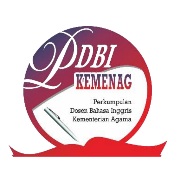Off-Record Politeness Strategies Used by the EFL Teachers for Blended Classroom
Abstract
The purpose of this study was to determine the politeness strategies used by teachers when teaching English in coeducational classrooms and the impact of these strategies on students. We focused on analyzing teachers' verbal perceptions of off-record politeness and explained the implications of politeness as found in two English lesson recordings. Researchers employed targeted selection and informative qualitative studies to obtain data. Data were collected through interviews and observations. Researchers transcribed the conversation and applied the theory of Brown and Levinson to analyze it. The subjects of this study were high school English teachers in South Sulawesi. Researchers observed classrooms by recording teacher activity and analyzing it using The theory of etiquette techniques by Brown and Levinson. Consequently, the effects on students in learning are motivation, student attitudes (emotional), respect for teachers, self-confidence, activity, participation in the teaching and learning process, and integrity.
Keywords
Full Text:
PDFReferences
Bargiela-Chiappini, F. (2003). Face and politeness: new (insights) for old (concepts). Journal of Pragmatics, 35(10–11), 1453–1469.
Brown, P., Levinson, S. C., & Levinson, S. C. (1987). Politeness: Some Universals in Language Usage (Vol. 4). Cambridge university press.
Creswell, J. (2013). Qualitative, Quantitative, and Mixed Methods Approaches. Research Design, 1–26. http://scholar.google.com/scholar?hl=en&btnG=Search&q=intitle:Research+design+-+Qualitative,+Quantitative,+and+mixed+methods+approaches#0
Estaji, M., & Nejad, P. G. (2021). Typical Patterning in EFL Teachers’ Use of Politeness Strategies in the Classroom: Does Perception of Politeness Make a Difference? Journal of Classroom Interaction, 56(1).
Fabio.Teacher. (2012). How to be Polite in English. English and Literature Journal. http://teacherfabio.com/2012/09/19/Howto-be-Polite-in-English/.Accessed on December 25,2014.
Fujii, K., & Inoguchi, E. (n.d.). Teaching Politeness : ESL / EFL and JSL / JFL Teachers ’ Attitudes in Comparative Perspective.
Fukushima, S., & Iwata, Y. (1985). Politeness in English. Jalt, 17(1), 1–14.
Liyanage, I., Walker, T., Bartlett, B., & Guo, X. (2015). Accommodating Taboo Language in English Language Teaching: Issues of Appropriacy and Authenticity. Language, Culture and Curriculum, 28(2), 113–125.
Mahmud, M. (2018). The Use of Politeness Strategies in the Classroom Context by English University Students. Indonesian Journal of Applied Linguistics, 8(3), 597–606. https://doi.org/10.17509/ijal.v8i3.15258
Mojo, J. K., Tulung, G. J., Kalangi, L. M. V., & Imbang, D. (2021). Positive Politeness Srategies of Tonado Javaness (Jaton) community. Linguistics and Culture Review, 5(S1), 1100–1109. https://doi.org/10.21744/lingcure.v5ns1.1493
Partington, A. (2006). The Linguistics of Laughter: A Corpus-Assisted Study of Laughter-Talk. Routledge.
Ratnawati. (2014). An Analysis of Students’ Politeness Strategies in Classroom Interaction. Universitas Negeri Makassar.
Rauf, M. (2017). Polite Expressions Used by Teachers in Teaching English in the Classroom. English and Literature Journal, 2(1), 139–157.
Salman, H. S., & Beti, M. J. (2020). Politeness and Face Threatening Acts in Iraqi EFL learners’ Conversations. Article in Glossa a Journal of General Linguistics, 3(8), 2020. https://www.researchgate.net/publication/344637114
Terada, K., Okazoe, M., & Gratch, J. (2021). Effect of Politeness Strategies in Dialogue on Negotiation Outcomes. Proceedings of the 21st ACM International Conference on Intelligent Virtual Agents, 195–202.
Togi Hutahaean, D., Herman, & Friska Ferawati Girsang, A. (2021). An Analysis Of The Politeness Strategies Utilized By Pesbukers In Their Variety Show. Wanastra : Jurnal Bahasa Dan Sastra , 13(1), 39–46. https://doi.org/10.31294/w.v12i1http://ejournal.bsi.ac.id/ejurnal/index.php/wanastra/39
Yanti, R. (2017). An Analysis of Off Record Strategies Reflecting Politeness Implicature in “Oprah Winfrey Show.” Jurnal Arbitrer, 4(1), 52. https://doi.org/10.25077/ar.4.1.52-57.2017
DOI: http://dx.doi.org/10.29240/ef.v6i2.4774
Refbacks
- There are currently no refbacks.
Copyright (c) 2022 Nur Aeni, Muthmainnah Muthmainnah, John Evar Strid, Eka Apriani

This work is licensed under a Creative Commons Attribution-NonCommercial-ShareAlike 4.0 International License.
INDEXED BY:
 This work is licensed under a Creative Commons Attribution-NonCommercial-ShareAlike 4.0 International License
This work is licensed under a Creative Commons Attribution-NonCommercial-ShareAlike 4.0 International License
@ ENGLISH FRANCA : Academic Journal of English Language and Education
Jl. Dr. AK Gani No 1 Dusun Curup, Rejang Lebong Regency, Bengkulu Province, Indonesia, 39119.
Dr. Eka Apriani, M.Pd., email: efranca@iaincurup.ac.id, eka.apriani@iaincurup.ac.id.




.png)












